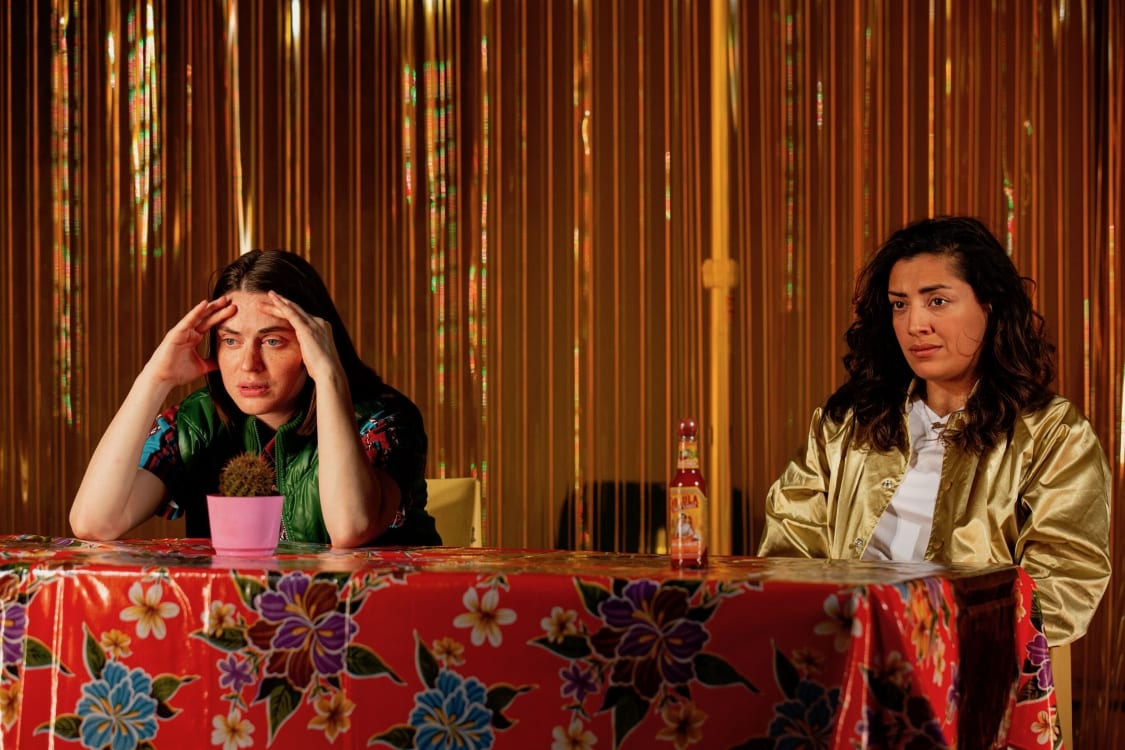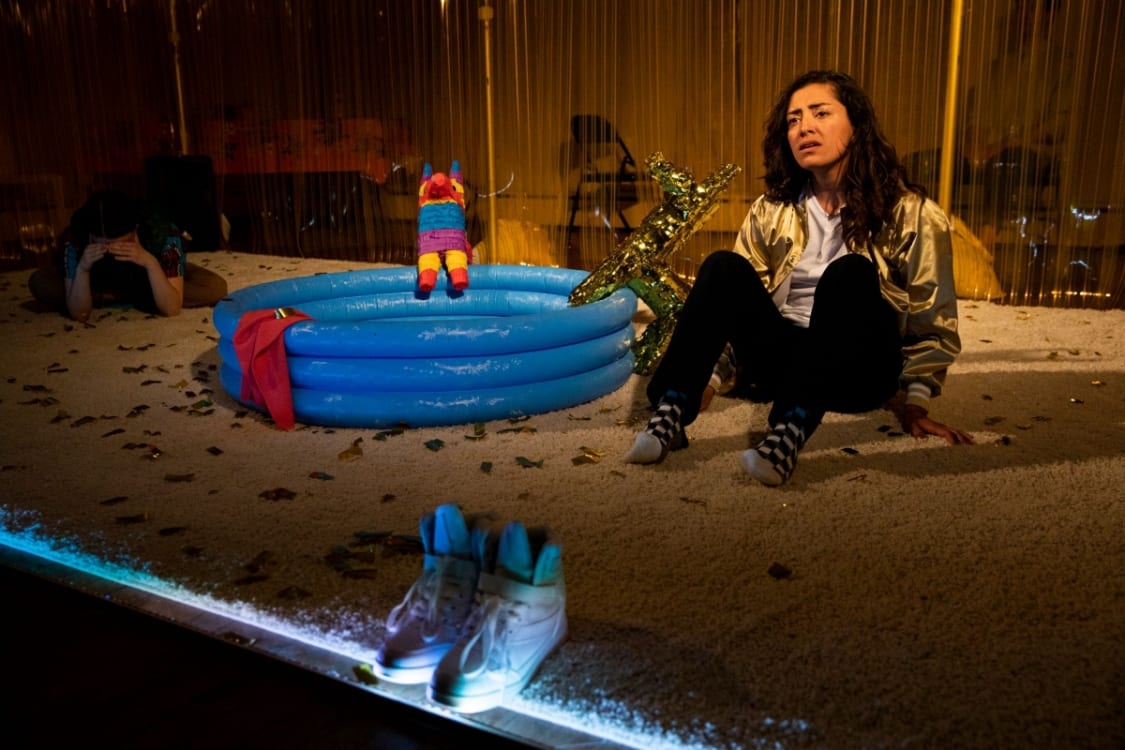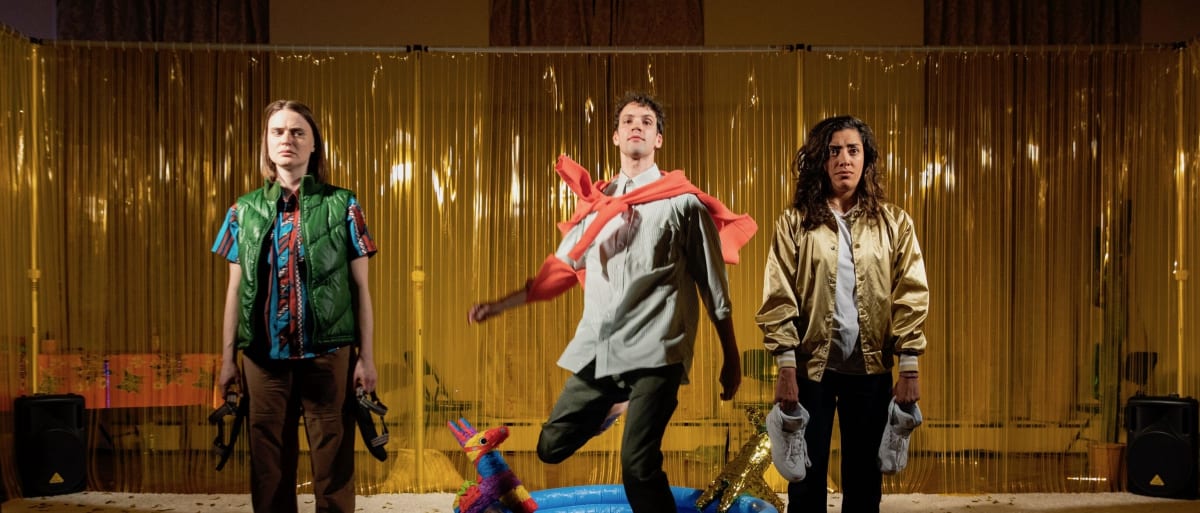To answer what’s probably your first question: no, you don’t need to see Books 1-5 first. They don’t exist. Ghosts, on the other hand, certainly do.
They do in the world Alex Borinsky created for Brief Chronicle Books 6-8. In fact, the main character, Julian (Susanna Stahlmann), befriends one named DT (Janice Amaya). DT brightly announces that he should be seen as the “bad little kid” because he bombed a city prior to appearing in Julian’s house. That’s hardly a deterrent from Julian seeing him as a love interest anyway. The two learn about each other’s lives and vulnerabilities and even take a vacation together to Mexico (to become even more cultured than they already are, of course, because they frequent Tacos Mexico, the best Mexican restaurant in Baltimore). Julian’s detached mother Joan (Jacob Perkins), his spirited marching band (Nicole Spiezio), and a mellow yet punchy narrator (Lindsay Head) join them to collectively make a story about the limits of identity and possession. Who and what can we possess, and what can’t we? How and why do we keep trying anyway?
The premise has its merit in theory – by casting the whole show against gender and tracing an intimate relationship between two male characters, Borinsky asserts that desire and curiosity and even dysfunction are not exclusive to any one type of person or relationship. That point comes across clearly. It is, however, about the only element of the show that does.

Let’s take the mother. Perkins delivers an affectingly unsettling performance as this dazed, recovering-alcoholic, trying-to-be-woke woman. When not sharing stories about Julian with DT (as mothers are wont to do), she floats in and out of the scene with musings about “the American kingdom” and “cultural constructions of trauma” and other sociopolitical buzzwords. If you didn’t know better, you might think she’s the ghost. And all those ideas she tosses out are like ghosts, too, of an attempt at meaningful political commentary that doesn’t quite land effectively, instead hovering between the stage and the audience, present but detached.
There’s that word again: “detached.” It really encapsulates the feeling of the play at large. The actors are there, and the five-foot cactus and plastic kiddie pool and pinatas of the set are there, but they never feel like one connected whole. The characters don’t connect much with each other, either – they physically share the space and perceive one another, but each person seems to operate in their own dimension. They each mostly interject their own thoughts without really hearing or responding to what the other characters say, creating a steadily staccato pace and tempered chaos. I was waiting for a conclusion to tie it all together or at least make some cohesive sense of it all, but it never comes. The appendix claims to provide some final clarity, but it does not live up to its promise – it is an odd interpretive dance that adds nothing notable to the play aside from being the first time the narrator gets up from her chair. Every line and every motion seems awkward and disjointed and perhaps that’s how it’s supposed to be, but the structure produces little but a pile of unanswered questions.

Now, an intricately detailed plot or set are not necessarily essential to an effective show – a langscape, or a setting and story built on words, can be just as effective as a visible landscape. In this case, a clearer landscape, or at least some more tangible organization, would have helped.
That’s not to say Brief Chronicle is utterly inaccessible – DT’s philosophizing may make you seriously ponder, and Band’s random, sporadic professions of aggressive enthusiasm for her club will make you heartily laugh. But what ultimately makes the show worth going is just being able to add “queer ghost story” to the list of show genres you’ve seen, and watching a comically ridiculous knockoff of a Mexican folk dance.

